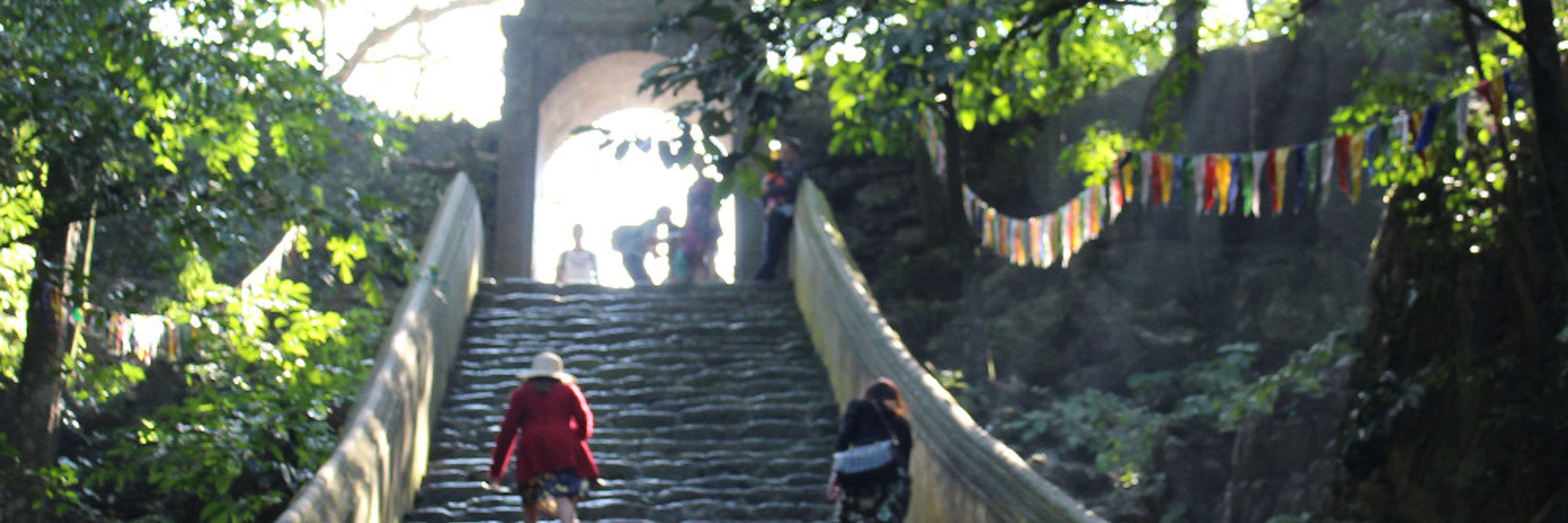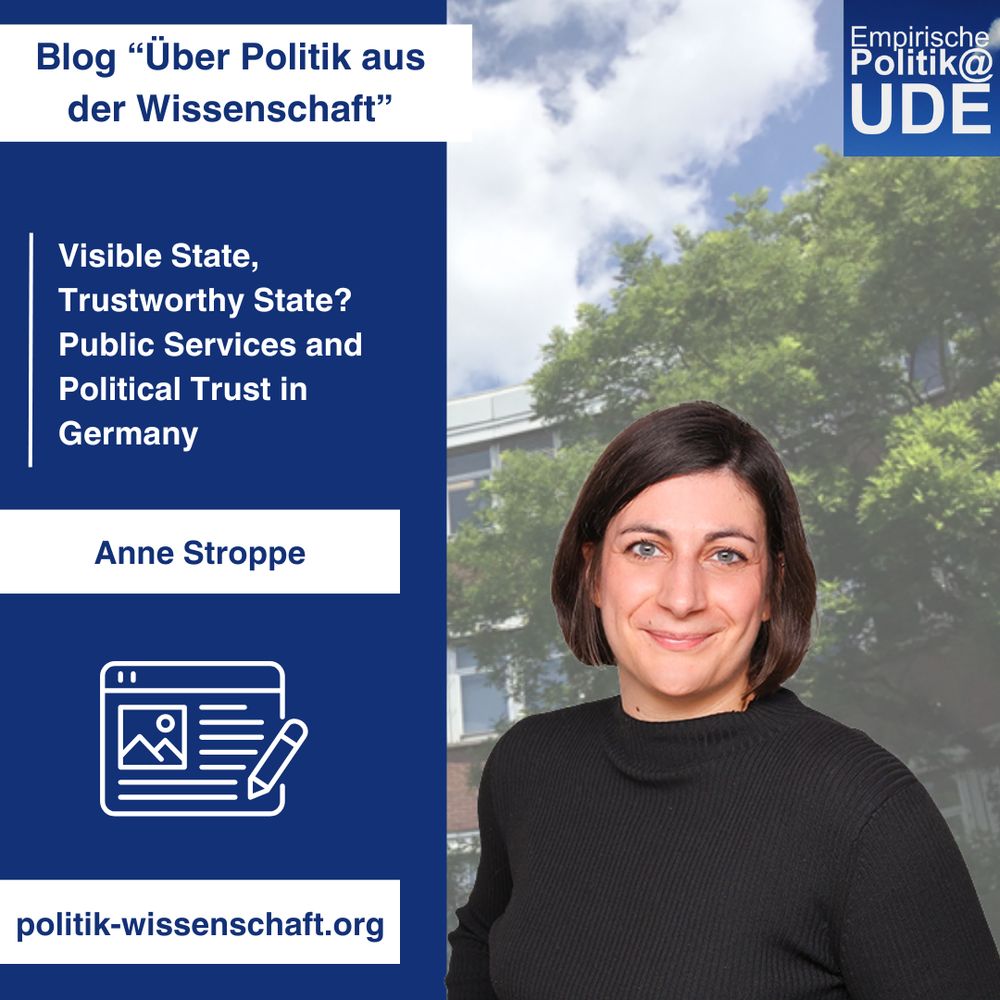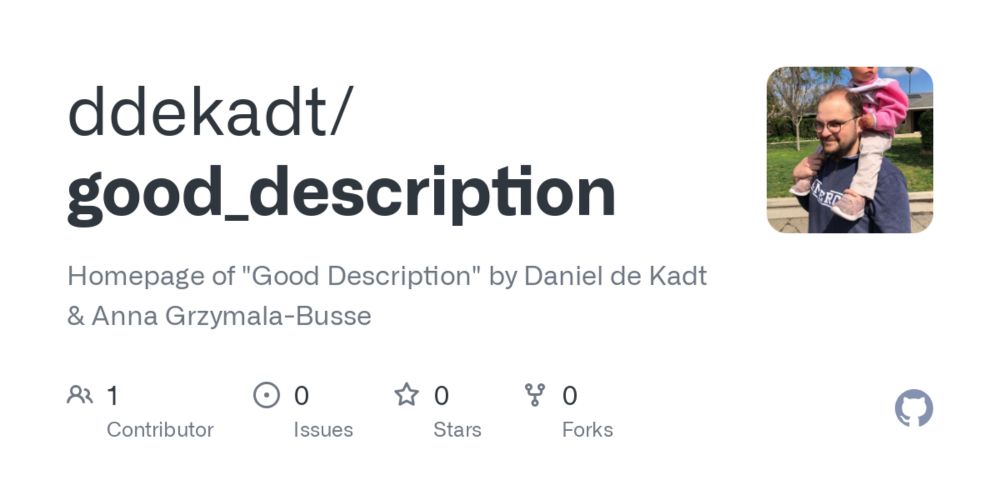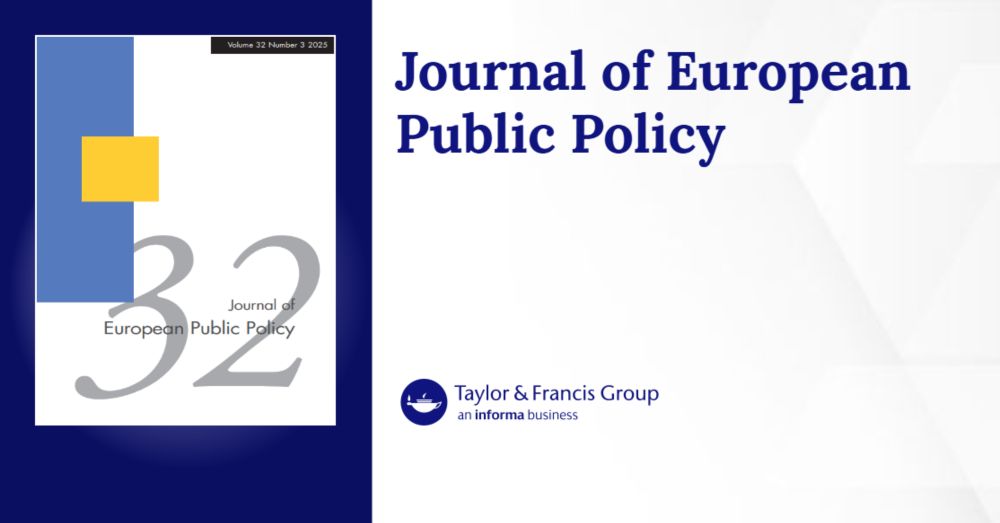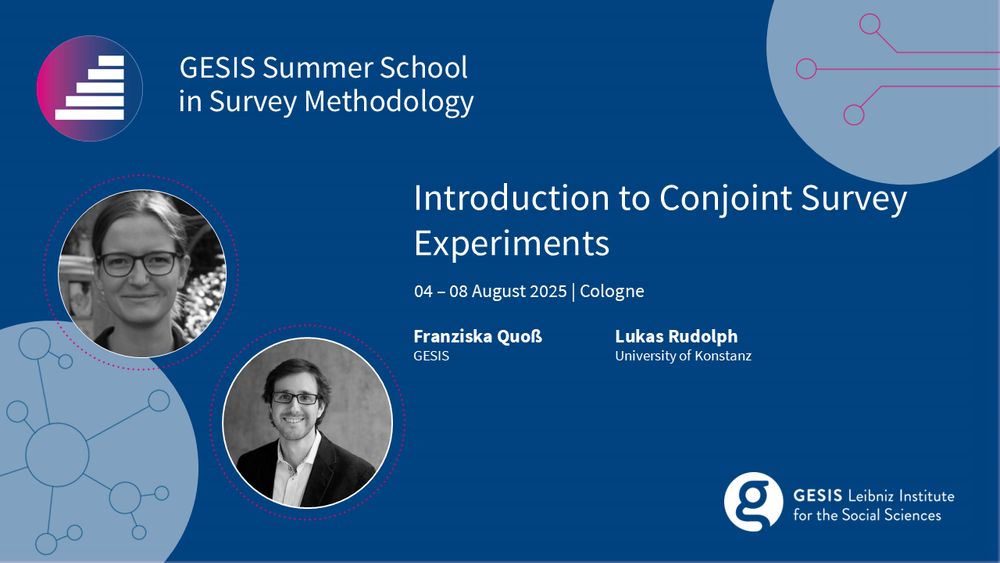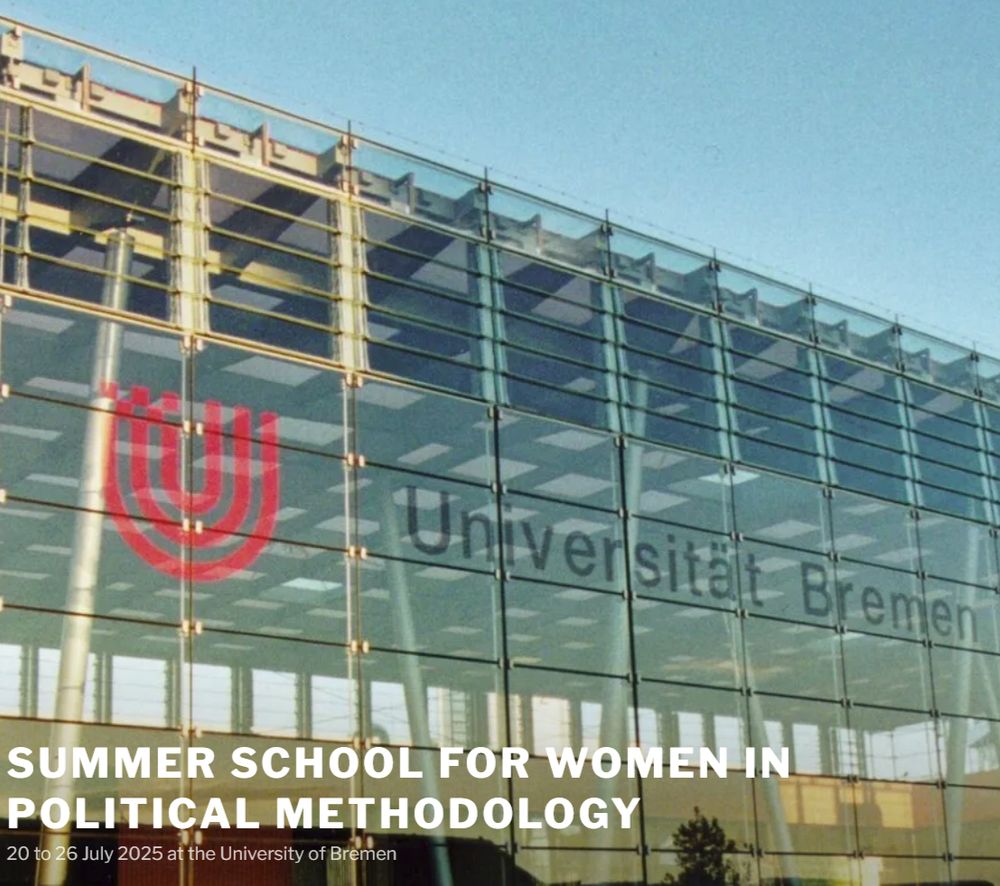Franziska Quoß
@phanxi.bsky.social
440 followers
290 following
7 posts
PostDoc at GESIS Cologne, prev. ETH Zurich. Research on environmental/climate politics & surveys.
Posts
Media
Videos
Starter Packs
Reposted by Franziska Quoß
Reposted by Franziska Quoß
Klara Müller
@klaramueller.bsky.social
· Jun 23
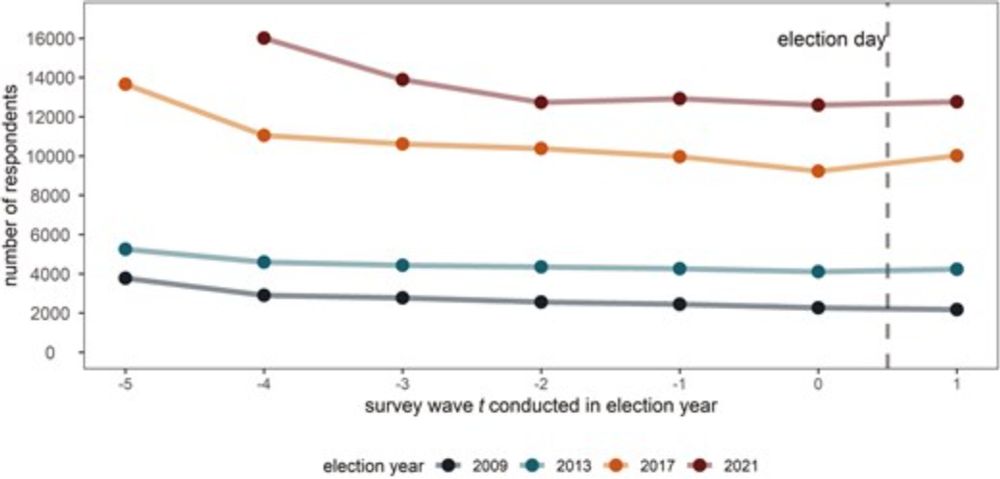
Survey Nonresponse After Elections: Investigating the Role of Winner-Loser Effects in Panel Attrition
Abstract. When and for whom do election outcomes drive survey nonresponse? This paper investigates whether belonging to the winners or losers of an electio
academic.oup.com
Reposted by Franziska Quoß
Reposted by Franziska Quoß
Reposted by Franziska Quoß
Reposted by Franziska Quoß
Reposted by Franziska Quoß
Reposted by Franziska Quoß
Nils Jungmann
@nilsjungmann.bsky.social
· May 14
Reposted by Franziska Quoß
Reposted by Franziska Quoß
Bob Kopp
@bobkopp.net
· May 7
Reposted by Franziska Quoß
Reposted by Franziska Quoß
Reposted by Franziska Quoß
Reposted by Franziska Quoß
Reposted by Franziska Quoß
Reposted by Franziska Quoß
Reposted by Franziska Quoß
Franziska Quoß
@phanxi.bsky.social
· Mar 31
Reposted by Franziska Quoß
Reposted by Franziska Quoß
Verena Kunz
@verenakunz.bsky.social
· Mar 12
